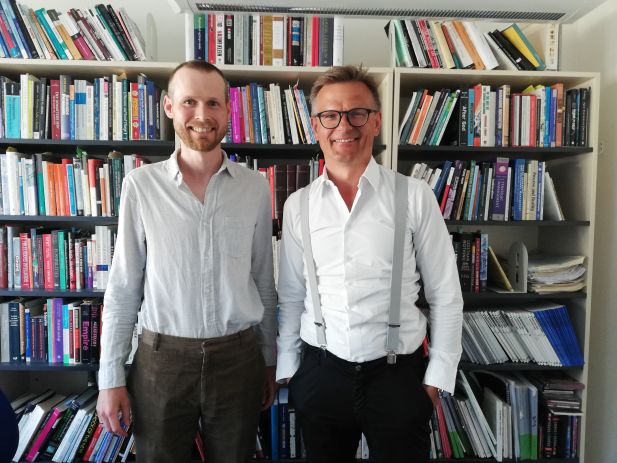Sender det moderne arbejdsliv os tilbage til puberteten?

Do you know the feeling of not knowing if your work contribution is satisfactory?
Today, a lot of people on the labour market find themselves being in a puberty-like limbo, where they do not know what good performance is. This is the conclusion of a qualitative study by Professor Bent Meier Sørensen and Associate Professor Christian Garmann Johnsen – both from the Department of Management, Philosophy at CBS, and Jens Budtz-Jørgensen from Roskilde University.
The study, which has been published in the academic journal “Organization” in 2019, is breaking with the classic opposition between a controlled or a completely limitless working environment.
”None of the above descriptions are able to capture the exact essence of working in a modern workplace; that we often find ourselves stuck in some kind of phase in between”, says Bent Meier Sørensen.
”It’s like 40-year-olds wearing sneakers”
In order to transcend the traditional understanding of limits, the researchers have studied other concepts to illustrate the modern workplace better.
They have analysed conversations between a number of employees and middle-managers from a Danish company by means of the concept “liminality”, which is known from anthropology and has been developed by a British pioneer within this discipline, Victor Turner.
”Liminality refers to a middle stage, where you find yourself being in between identities. A kind of social limbo that can be compared with the transition from being a boy to becoming a man,” says Bent Meier Sørensen.
Many employees and middle-managers explain that they find themselves being in this stage”, Bent Meier Sørensen says and continues:
”A lot of people do not know what is demanded from them and spend a lot of energy imagining what is demanded from them. That makes them feel stuck – it is sort of like men in their 40s still wearing sneakers to look younger.”
Self-assessment has consequences
In other words, the modern working life generates employees that often grope in the dark and are sometimes stuck in a neither-here-nor-there stage for a long time. A stage, which may resemble puberty.
And when employees have to guess what a good work performance is, it puts the individual under great pressure. According to Christian Garmann Johnsen, this is problematic:
”On the one hand, when you blur the lines in relation to controlling how your employees solve their tasks, you offer them a lot of freedom and flexibility. You can sit on your couch at home with your laptop. However, on the other hand, blurred lines may be a source of stress and insecurity, because you can work more and work in new ways all the time,” he says.
Sets the stage for a better definition of limits from management
More feedback from management on specific tasks and how they are performed may possibly reduce the pressure on the individual employee, says the two researchers.
Nevertheless, it is not that simple to implement more or better defined limits.
”Many criteria for a good work performance may not make sense in practice, as you also have to consider personality and workplace relations when assessing your employee,” Christian Garmann Johnsen elaborates.
So it is an extremely complex task to solve this problem with limits – whether there are too many or too few.
”We are not imagining that we can solve this complex of problems on the basis of a few work studies. However, we do hope to inspire the business community and others to think more about limits and career development and at least break with the simple opposition between too many limits on the one hand and no limits at all on the other hand,” says Bent Meier Sørensen.
For more information please contact Ida Eriksen, Communications